When my sister, Roselyn Romberg, sold her house a couple of years ago, she did some major renovations on it first. This ignited her interest in flipping houses. She’d had the experience of giving her house a makeover and selling it for a profit. She had some money left over to invest in another property. And she now had a list of contractors and workers that she knew and trusted. She formed her own company, RE/Structure, and went to work. Here’s what she learned.
Flipping houses – is it worth the money?
Why Flip This House?
- Because you know how to buy a house efficiently and cost-effectively.
- Because you know how to fix most of what could be or is wrong.
- Because you know who to contract for whatever you can’t do yourself.
- Because you have enough money to cover all know and most unforeseen costs, and know that you will make more money on the flip than any other way you could have invested that cash.
- Because you know who the customer for the upgraded house is, and they are ready and able to buy.
- Because you know how to sell a house efficiently & cost-effectively.
What could go wrong?
- Everything.
- Anything.
- Most things.
- Things you never thought of.
- Things you never imagined.
What helps a flip project go well?
- Make a budget and stick to it.
- Have a detailed timeline or project plan and stick to it.
- Treat everyone who works on the project with respect.
- Know your team – who does what well, when, and how.
- Keep a fridge stocked with drinks and snacks.
- Leave a radio onsite.
- Keep track of EVERYTHING.
- Pay your crew every week.
- Hold people accountable for their work, their schedules, their promises.
- Practice being realistic about expectations, deadlines, delivery dates, costs.
- Know your customers and what they like, are looking for, dislike, dream of, will pay for, won’t pay for.
- Be willing and prepare yourself to get dirty, hear bad news, fire liars or drunks or thieves, pick up a tool, sit on the floor, crawl into a dark and dusty attic, discover pests, be unpopular, make tough choices.
- Be willing and plan to treat inspectors, town administrators, fire marshals, utility workers, masons, roofers (such as Fairclaims Roofing), carpenters, plumbers, electricians, etc. as the professionals they are.
- Be humble about what you know, and about what you don’t know.
- Research trends and tastes for your property type, customer type, and region.
- Keep the neighbors informed about everything that might affect them.
- Praise good work.
How much money do you make?
“It depends on the house, on how good the real estate market is at that point in time, on how good the agent is, on how many buyers there are, and probably a whole host of other things. In general, if I make 4% to 5% of the sale price of the house, I’m happy (so 25K on a 500K house).”
Don’t you have to have a lot of capital?
“It depends on where you live and what the bank says. Where we are (New England), I need to have 30% of purchase price as downpayment, and 6 months of monthly mortgage plus taxes and insurance, and I have to pay for all the rehab costs (banks here won’t lend money for the rehab). If you are flipping an auctioned house you likely need to be able to buy the house outright, but the bank might lend you the rehab money.”
How much money do you put into every house? “
So far, about $100-150K.”
How do you decide which homes will be a good investment?
“Location. Location. Location. Seriously, though, I think about it in reverse. I have a customer base that I like and feel confident selling to. I do a lot of research on their tastes, needs, expectations, fantasies, etc., even to choices of things like paint colors, landscaping plants, flooring and tile and countertop styles, and so on. I look for properties that, if rehabbed, would be an instant sale because my customer type would like it – right town, right neighborhood, right neighbors, right type of house, right things done to it.”
How do you do your research?
“First, I only work in a limited number of towns, all suburbs of Boston. I work with well-respected, long-time real estate agents with a lot of experience, one for each of the towns I work in. They know their towns, their properties, and types of buyers looking in those towns quite well. They advise me on pricing, landscaping, exterior paint colors, curb appeal, and anything else that, in their opinion, is most appropriate and appealing for their town and the specific property.
Before I purchase a property to rehab, I already have a plan for exactly what the “finished” house will look like – and cost me.
Have you ever lost money on a house?
“Not yet!”
So, is it worth it?
According to Roselyn, “It is not a way to make a living, flipping houses, unless you are a construction company with a lot of cash, and can be doing a dozen houses a year. I’m only considering it a hobby now, and will probably do one every other year or so, if that. Fun work, but tricky to make it work. The next house I’m doing I’m not going to flip. We’re going to try our hands at being landlords.”
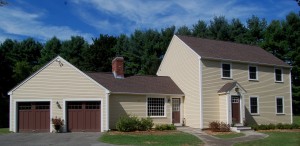
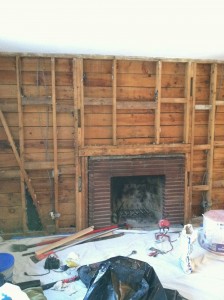
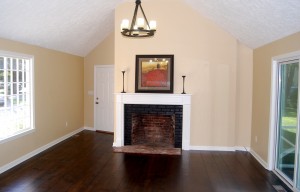
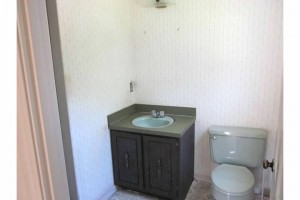
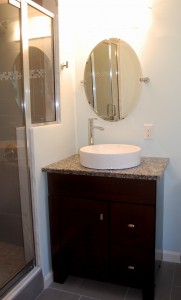
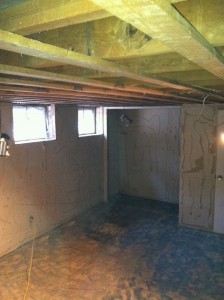
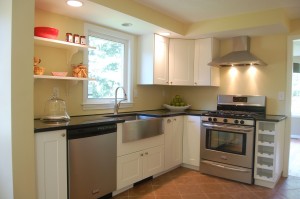


I kinda want to buy a house around $100-$150k and then keep flipping on up until I get my dream house.
@Will Sounds like a great plan! Have you flipped a house before? What are you waiting for?
You make some excellent observations. I’ve flipped houses before and it can be very lucrative but like you say it’s fraught with difficulties.
Sticking to a fixed budget is essential especially as the sums of money involved in house flipping are significant. To maximise your return you have to have a clear plan and be able to be disciplined in your delivery, however the returns can be highly lucrative if you do it right !